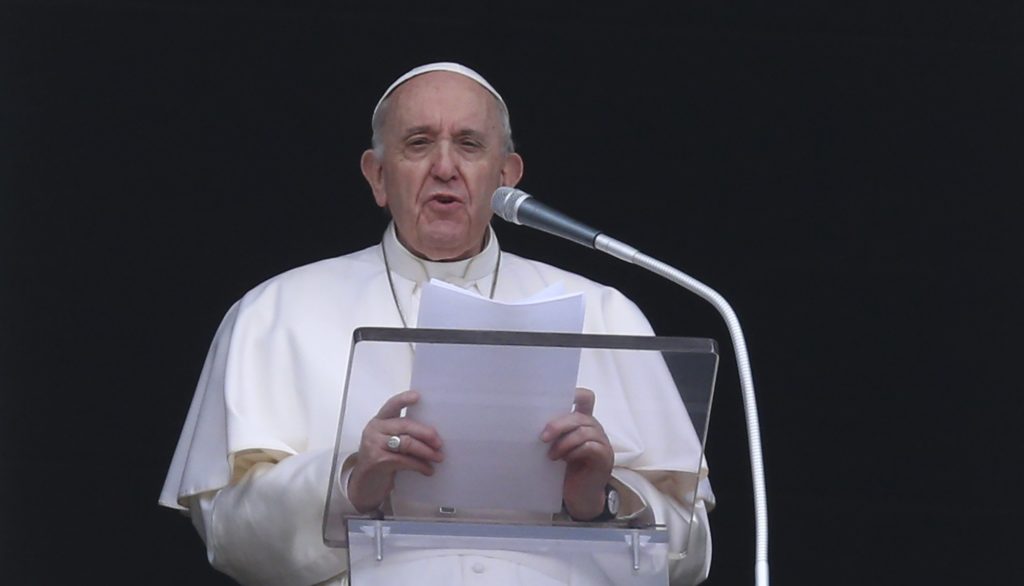Pope Francis resumed the Angelus from the window of the Apostolic Palace in front of the faithful in St. Peter's Square after the end of the Easter season last week.
"Today we celebrate the Most Holy Trinity," the Holy Father began, "the mystery of the one God in three Persons: Father, Son and Holy Spirit. It is an immense mystery, which surpasses the capacity of our mind, but which speaks to our heart, because we find it enclosed in that phrase of St. John which sums up the whole of Revelation: "God is love" (1 Jn 4:8.16). Insofar as love, God, although one and unique, is not solitude but communion. Love, in fact, is essentially self-giving, and in its original and infinite reality it is the Father who gives himself by generating the Son, who in turn gives himself to the Father, and their mutual love is the Holy Spirit, the bond of their unity".
"This mystery of the Trinity was revealed to us by Jesus himself," the Pope assured. "He made known to us the face of God as the merciful Father; he presented himself, true man, as Son of God and Word of the Father; he spoke of the Holy Spirit who proceeds from the Father and the Son, the Spirit of Truth, the Paraclete Spirit, that is, our Comforter and Advocate. And when he appeared to the apostles after the Resurrection, Jesus commanded them to evangelize "all nations, baptizing them in the name of the Father, and of the Son, and of the Holy Spirit" (Mt 28,19). Therefore, the mission of the Church and, in her, of all of us, disciples of Christ, is to make it possible for every man and every woman to "immerse themselves" in the love of God and thus receive salvation, eternal life".
Today's feast, therefore, "makes us contemplate this marvelous mystery of love and light from which we come and toward which our earthly journey is directed. At the same time, it invites us to strengthen our communion with God and with our brothers and sisters, drinking from the fountain of Trinitarian Communion. Let us think of Jesus' last great prayer to the Father immediately before his Passion. At the end of that prayer - like a spiritual testament - Christ's heart gushes forth a supplication that expresses the will of the Father. Let us listen once again to the words of Jesus in the Gospel of John: "That they may all be one. As you, Father, are in me and I in you, that they also may be one in us, so that the world may believe that you have sent me" (17:21).
"In the proclamation of the Gospel and in every form of Christian mission, one cannot do without this unity invoked by Jesus; the beauty of the Gospel needs to be lived and witnessed in concord among us, who are so different."
Reflecting on the attitude of Christ's disciples, Francis said that "it should always be possible to say of Christ's disciples: 'They are so different and yet look how they love each other! And not only among themselves, but to everyone, even more so, especially to the people they meet as "strangers" along the way, wounded, ignored, despised. The living sign of God the Trinity is love for one another and for all; sharing joys and sorrows; not imposing oneself on others, but cooperating with one another; the courage and humility to ask for forgiveness and to give it; valuing the different charisms that the Spirit distributes for common edification. In this way, ecclesial communities grow that evangelize not so much with words, but with the power of the love of God that dwells in us through the gift of the Holy Spirit".









